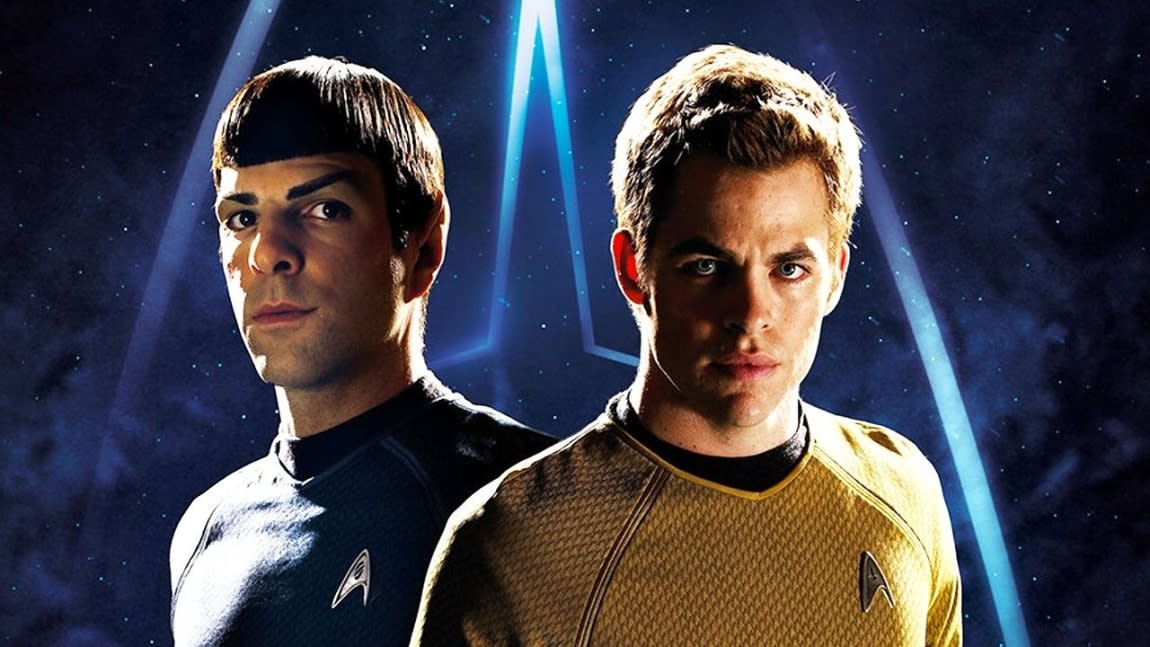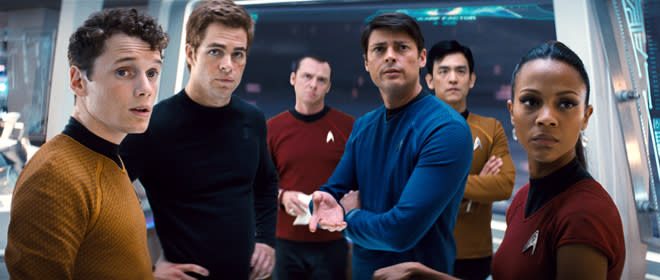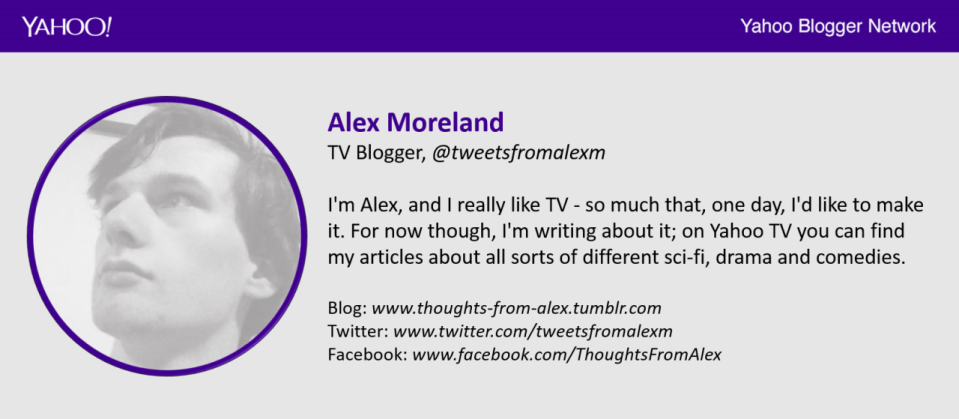Star Trek 2004: The Reboot We Almost Saw


On 3rd February 2005, it was announced that Star Trek: Enterprise would be cancelled, drawing this series to a close after a mere four seasons – impressive for a normal show, of course, but following three successive Star Trek shows which reached seven seasons, it was difficult not to shake the feeling that Enterprise had never quite lived up to its full potential. This was, then, the first time in eighteen years that new Star Trek was not slated for production; it was to be another five years before Star Trek returned, with a big screen movie reboot focusing on the characters from The Original Series.
Interestingly, though, this wasn’t the first time a return to The Original Series had been proposed – in the dying days of Enterprise, J Michael Straczynski of Babylon 5 fame had put together a pitch to “reboot the universe” – he put together a proposition for a return to Star Trek’s roots, with a new series centred around all new, younger versions of Captain Kirk, Mr Spock and Dr McCoy, telling the story of how they met and what happened on their historic five-year mission.
A fourteen-page document, which Straczynski and co-writer Bryce Zabal used to pitch their ideas to Paramount, outlines the idea for this new Star Trek. Opening by suggesting that the franchise had stagnated (perhaps a fair position to take), Straczynski and Zabal made the case that they needed to be daring with the Star Trek universe once more, and the best way to do that was to start all over again – thus setting their series up to cure all the perceived ills of Enterprise.
Particular focus is given to Kirk, Spock and McCoy – or as Straczynski and Zabal put it, “the warrior, the priest, and the doctor” – who were intended to be the grounding presence and heart of the new show, much as they had been in the original. The pitch likens these characters to icons such as Superman and Batman, or Bond and Sherlock Holmes – the point is clear, then, that Straczynski and Zabal believe wholeheartedly that new actors could take on the iconic roles and redefine them. Indeed, it’s even suggested that a “Search for Spock” could form part of the promotional campaign for the new series; this was intended to be a cultural event, in a manner not wholly dissimilar to how Doctor Who launched on the BBC just a year later.
Straczynski and Zabal put forth their plans for the pilot episode: a two-hour movie event which would tell the story of how Kirk and McCoy first met Spock, discovering along the way “a lost city on an uncharted world, nearly a million years old”. They would also encounter an ancient and mysterious race, who would form an important part of the series’ mythology – the reason for Kirk’s appointment to the Enterprise, and the iconic five-year mission, would be to seek out this strange new life, to learn more of their ancient civilisation, and discover the secret hidden in the stars.
The idea was that our trio had caught a glimpse of a species long thought to be dead – a species who, it would soon be realised, had left an “artist’s signature” coded in the DNA of humans, Vulcans, Klingons, and so on and so forth. Kirk’s Enterprise would be searching for this race, and searching for the secrets that “could elevate humanity to unparalleled levels.” This would – at least initially – be a secret prime directive known only to Kirk, Spock, and McCoy; it would also influence many of the episodes in the series, with one potential storyline suggested Kirk be caught in a dilemma between saving lives, or gaining crucial information to continue the search for this species.
Of course, the pitch does mention elements we’re already familiar with – our main crew will still include Uhura, Sulu, Chekhov and Scotty. There’s also the tantalising suggestion that Straczynski and Zabal would try to recruit writers such as Neil Gaiman, Anne Rice or Ray Bradbury to write for the series – the defining voices of science fiction and fantasy, in much the same way that Harlan Ellison wrote for The Original Series.

Ultimately, though, one question remains.
Would this have actually worked? Was a return to the beginning exactly what Star Trek needed? Could we have seen Star Trek becoming event television once more?
Obviously not.
It’s quite commonly accepted by this point that Star Trek: Enterprise was, predominantly, a victim of franchise fatigue; as mentioned earlier, Star Trek had been on television for 18 years consistently. That’s a long time, and to sustain that you’re going to need to continue to attract new viewers across the length of time; Enterprise’s dwindling viewing numbers made it fairly clear that Star Trek was fast becoming a show only watched by fans, and not one watched by the public. While Straczynski and Zabal had some good ideas to attract some initial attention, what they didn’t have was any reason for people to believe it wouldn’t just be more of the same – quite literally, in their case, given the mooted reboot.
Indeed, when you look at this pitch as a whole, it becomes evidently quickly that the whole thing amounts to little more than just reheated leftovers. Even the big hook – an ancient race of intelligent designers – had been done before in The Next Generation. (Though I’ll concede it was an idea that was underutilised in TNG initially.) It goes further though, because Straczynski and Zabal had also suggested the possibility of remaking original series episodes again; a new version of Trouble with Tribbles, for example, suggesting that four or five episodes could be directly adapted from the original screenplays. No doubt that this reboot would have run aground of the same complaints as Into Darkness, the second in JJ Abrams’ series of rebooted Star Trek movies: unable to match or surpass the original, underwhelming when considered on its own, and ultimately lacking in quality.
True, a few nods are made to the possibility of changing things up, with Straczynski and Zabal commenting that “the fun, the excitement and the passion of the re-boot is in the imagining of the alternative”, and highlighting the option to look at the original content in a new way. One example they suggest is for the Tribbles to have “an agenda, an attitude…and teeth”, which sounds like it could either be excellent, or terrible. The more interesting of their suggestions, though, is the idea that Scotty could be a woman; true, it’s clear that they don’t entirely mean it, with their jokey “just an example!” disclaimer, and the suggestion that this casting choice would denote that women could excel at maths in the future carries the unfortunate implication that they can’t now, but it is an interesting idea. Indeed, it’s one of the few times that they seem willing to really break with convention – up until that point, it appears that Straczynski and Zabal are just a little upset they never got to write for The Original Series, and want to just do it all over again.
Towards the end of their pitch, Straczynski and Zabal comment “No one can ever compete with Gene Roddenberry’s original series. We can, however, stand on his shoulders and see things from a different point-of-view.” But a reboot like this wouldn’t have done that – it wouldn’t have looked outward, but only inward. Rather than boldly going, it was simply retreating; it wouldn’t have been able to breathe strange new life into a franchise perceived to have faded away.
This reboot is not what Star Trek needed, and honestly, we’re better off without it.
Related:
Bryan Fuller confirms female lead, gay character and prequel setting for Star Trek: Discovery
Like this article? Hate this article? Why not follow me on twitter for more, or send me a message on facebook to tell me what you thought? You can also find more of my articles for Yahoo here, or check out my blog here.


 Yahoo News
Yahoo News 
